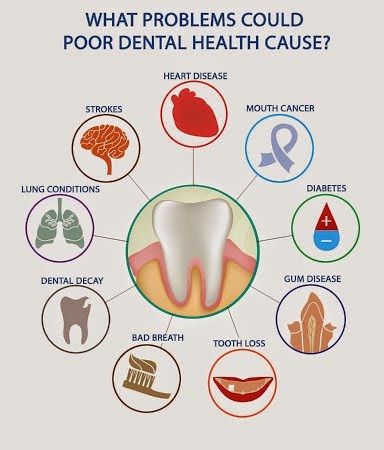You might have heard the saying, “A healthy mouth leads to a healthy body,” and it couldn’t be more accurate. The connection between oral health and overall health is a topic of increasing interest in the world of medicine and dentistry. It turns out that taking care of your teeth and gums doesn’t just lead to a radiant smile; it can also have a significant impact on your general well-being. In this blog, we’ll explore the intricate relationship between oral health and overall health and why it’s crucial to maintain good oral hygiene.
The Oral Health-Systemic Connection
Research over the past few decades has revealed a strong correlation between oral health and the health of other systems in the body. Several key aspects of this connection include:

- Cardiovascular Health: Poor oral health can lead to gum disease, which is associated with an increased risk of heart disease and stroke. Inflammation and infections in the mouth can potentially affect the blood vessels and lead to cardiovascular problems.
- Respiratory Health: Bacteria from oral infections, if inhaled into the lungs, can contribute to respiratory infections, including pneumonia. Maintaining oral health can help reduce the risk of such complications.
- Diabetes Management: Diabetes and gum disease often go hand in hand. Not only can diabetes affect oral health, but gum disease can also make it more challenging to control blood sugar levels. Managing gum disease can help improve diabetes management.
- Pregnancy and Birth Complications: Poor oral health in expectant mothers has been linked to premature birth, low birth weight, and other pregnancy complications. Good oral hygiene is vital for the health of both mother and child.
- Kidney Disease: Chronic kidney disease has been associated with periodontal disease. Individuals with kidney disease need to pay extra attention to their oral health to reduce the risk of complications.
- Arthritis: While the relationship is not fully understood, some studies suggest a connection between rheumatoid arthritis and periodontal disease. Researchers continue to explore this link.
- Cognitive Health: Emerging evidence indicates a potential link between gum disease and cognitive decline, including Alzheimer’s disease.
Oral Health Habits for Overall Wellness
Now that we’ve established the significance of oral health in maintaining overall well-being, it’s essential to know how to promote good oral hygiene. Here are some habits to incorporate into your daily routine:
- Regular Dental Check-Ups: Visit your dentist for routine check-ups and cleanings. This helps in early detection and prevention of dental issues.
- Brush and Floss Daily: Brush your teeth at least twice a day, and don’t forget to floss. Proper brushing and flossing remove plaque and prevent gum disease.
- Balanced Diet: A diet rich in fruits, vegetables, and lean proteins can benefit both your oral and overall health. Avoid excessive sugar and acidic foods.
- Limit Tobacco and Alcohol: Smoking and excessive alcohol consumption can harm your oral health. Reducing or quitting these habits can improve your overall health.
- Manage Stress: High-stress levels can contribute to teeth grinding and other oral health issues. Find healthy ways to manage stress.
- Stay Hydrated: Drinking water is not only good for your body but also helps maintain optimal saliva production, which helps protect your teeth.
The link between oral health and overall health is undeniable. Neglecting your oral health can have far-reaching consequences, affecting various aspects of your body’s well-being. To ensure you’re on the right path to a healthy body, it’s essential to prioritize good oral hygiene. Regular dental check-ups and daily oral care routines are the foundation of a healthier, happier life. So, remember, every time you smile, you’re not just showing off your pearly whites; you’re also showcasing your commitment to your overall health.

